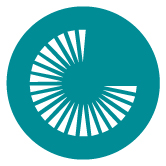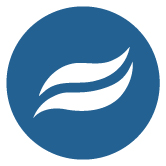
    
|
Not Found |
| Major: 3124
Catalog Year: 2023-2024
Effective Term: 2014 Fall
Last Admit Term: 2015 Spring
Award: AAS Total Credits: 63-68 CIP Code: 13.1209 |
Primary College:
Initiating College: Rio Salado College
Program Availability: Not Found
Program Availability: Shared
Field of Interest: Not Found
Instructional Council: Early Childhood Education (62) GPA: 2.00 |
|
SOC Code:
| |
|
Program Prerequisites: None
|
|||||||||||
| Required Courses | |||||||||||
|---|---|---|---|---|---|---|---|---|---|---|---|
ECH128 Early Learning: Play and the Arts 3 | Credits: 32 | ||||||||||
| Restricted Electives | |||
|---|---|---|---|
Students must complete one of the following Blocks: | Credits: 9 | ||
| General Electives | |||
|---|---|---|---|
|
| Credits: | ||
| General Education Requirements | |||
|---|---|---|---|
| General Education Requirement | Credits: 22-27 | ||
| General Education Core | Credits: 12-17 | ||
| First-Year Composition | Credits: 6 | ||
| + ENG101 First-Year Composition (3) OR
+ ENG107 First-Year Composition for ESL (3) AND + ENG102 First-Year Composition (3) OR + ENG108 First-Year Composition for ESL (3) 6 | |||
| Oral Communication | Credits: 3 | ||
| Any approved general education course in the Oral Communication area. 3 | |||
| Critical Reading | Credits: 0-3 | ||
| + CRE101 College Critical Reading (3) OR
Equivalent as indicated by assessment. 0-3 | |||
| Mathematics | Credits: 3-5 | ||
| Any approved general education course in the Mathematics area. 3-5 | |||
| General Education Distribution | Credits: 10 | ||
| Humanities, Arts and Design | Credits: 3 | ||
| Any approved general education course in the Humanities, Arts and Design area. 3 | |||
| Social-Behavioral Sciences | Credits: 3 | ||
| CFS/ECH176 Child Development (3) OR
EED205 The Developing Child: Prenatal to Age Eight (3) OR CFS235 Developing Child: Theory into Practice, Prenatal - Age 8 (3) 3 | |||
| Natural Sciences | Credits: 4 | ||
| Any approved general education course in the Natural Sciences area. 4 | |||
| Program Competencies | |||
|---|---|---|---|
| 1. Explain the importance of play, creativity and the arts in contemporary early childhood programs, and how they support early learning. (ECH128)
2. Demonstrate planning, management and evaluation skills related to developmentally appropriate play, arts, and learning activities. (ECH128, EED261) 3. Review the emerging professionalism of the field of early childhood education, including a code of ethical conduct. (EED200) 4. Identify theories, standards, and public policy within the field and describe how these influence early childhood programs. (EED200) 5. Describe how developmental characteristics, individual needs, adult expectations and cultural contexts influence the behavior of children from birth through age eight. (EED212) 6 Describe policies, practices and regulations which ensure the health and safety of young children in group settings. (EED215) 7. Describe the nutritional needs of young children from birth on and explain how these needs are met with food selection, food preparation, and daily eating/feeding routines. (EED215) 8. Explain how community diversity and demographics influence early childhood programs, professionals, and the young children and families served. (EED220) 9. Identify appropriate professional responses that ensure the social and emotional well-being of young children including identification of child maltreatment. (EED220) 10. Describe the process of identification, referral and assessment of young children whose development differs from the average. (EED222) 11. Identify strategies for inclusion, instruction, and support for the exceptional young child within the contexts of family, community and early childhood programs. (EED222) 12. Describe how young children develop language, literacy and writing skills and how adults support literacy development. (EED245) 13 Construct a portfolio which demonstrates professional development over time in a variety of dimensions, including professional writing samples. (EED255) 14. Contrast current approaches to curriculum for young learners and explain how state standards relate to curriculum and instruction. (EED278) 15. Identify multiple assessment procedures, their strengths, weaknesses and relationship to early learning standards. (ECH128, EED278, EED280) 16. Apply professional knowledge, skills and ethics of the early childhood profession to early learning settings in the community. (EED200, EED260, EED261) 17. Explain how Arizona Learning Standards are applied within programs serving children three to five and five to eight years of age. (EED280) | |||
|
+ indicates course has prerequisites and/or corequisites.
++ indicates that any suffixed course may be selected. MCCCD Governing Board Approval Date: June 24, 2014 | |||